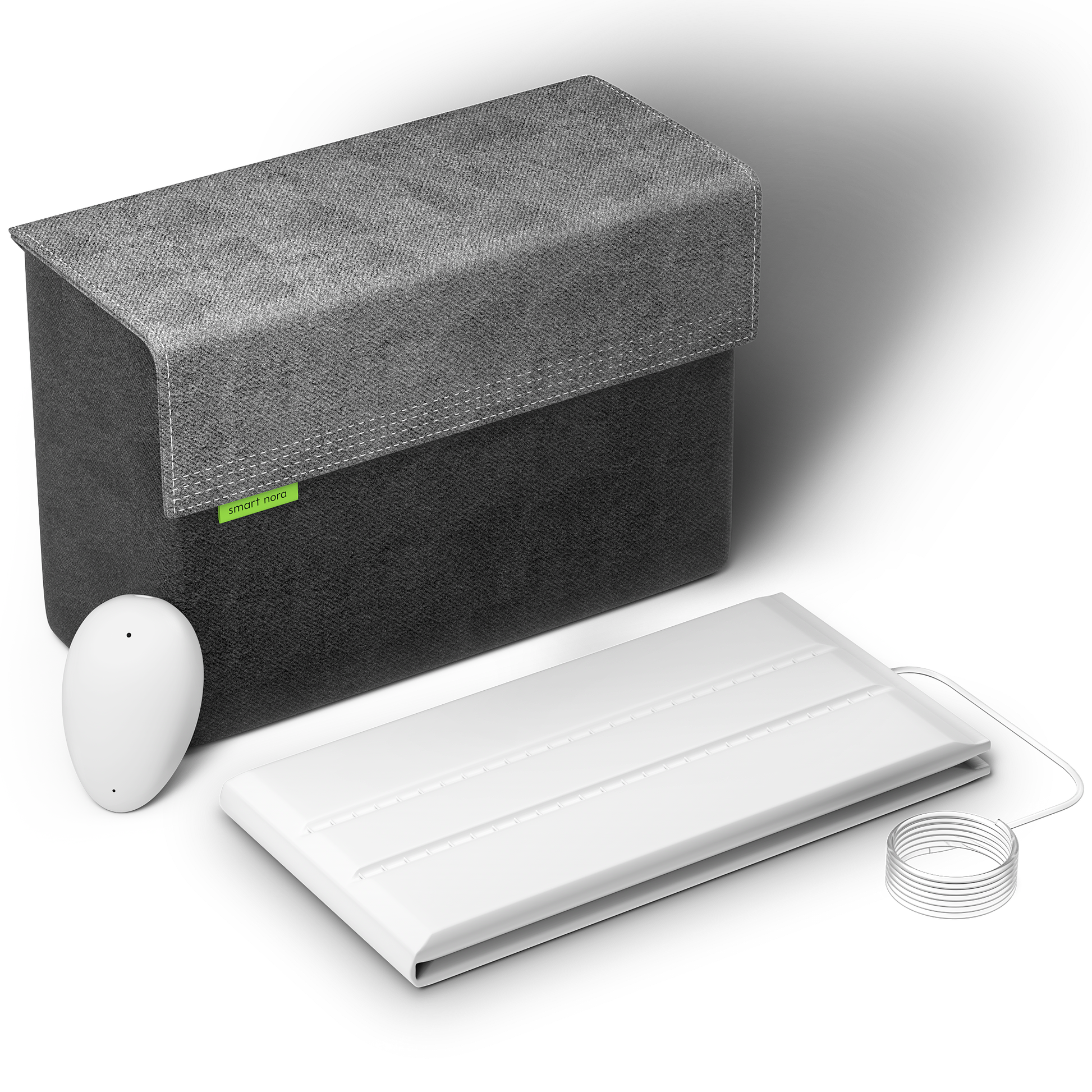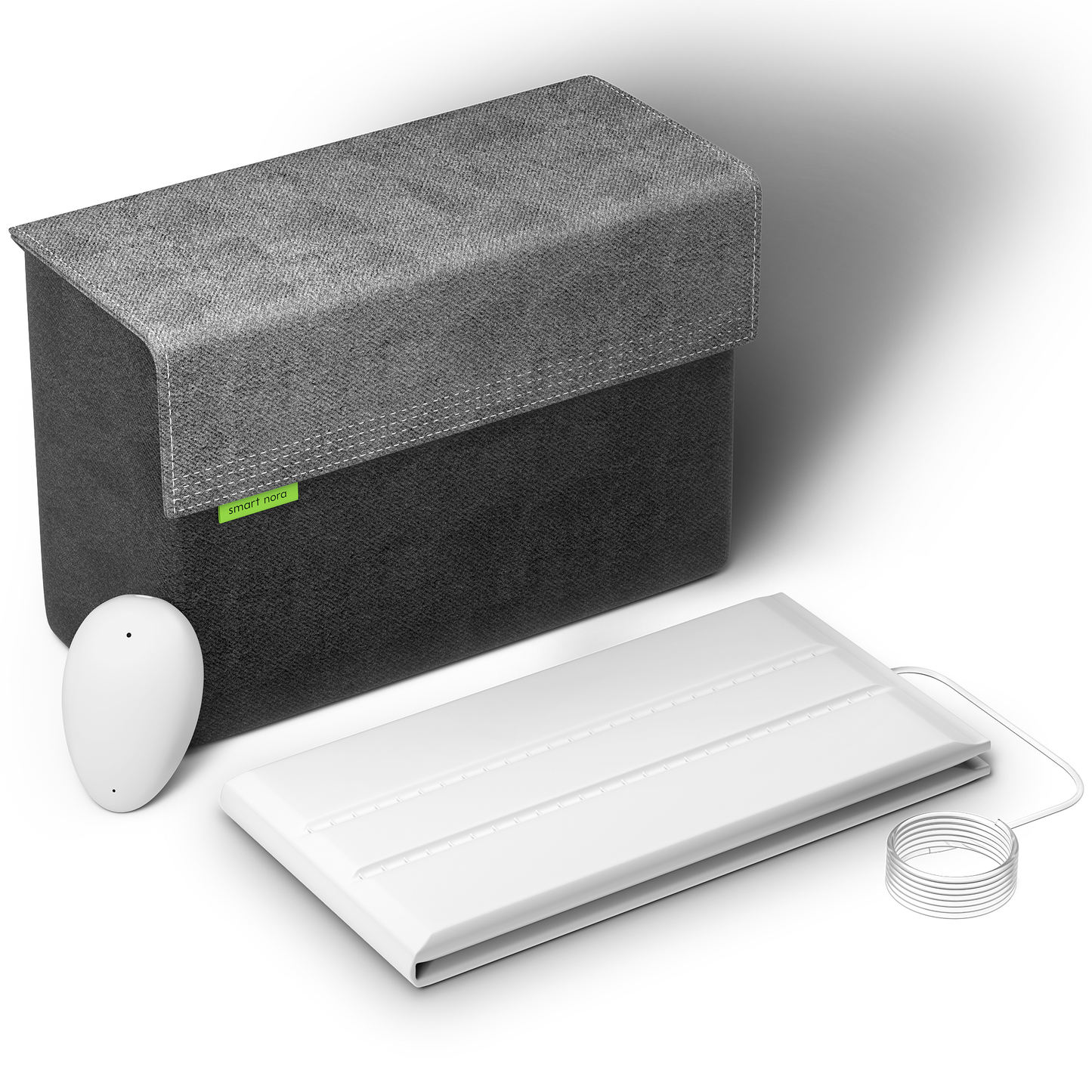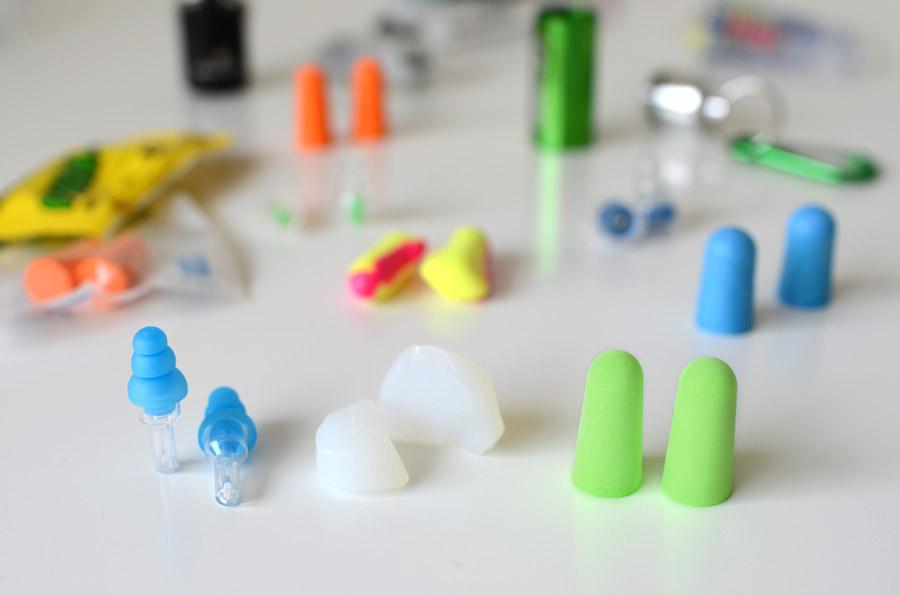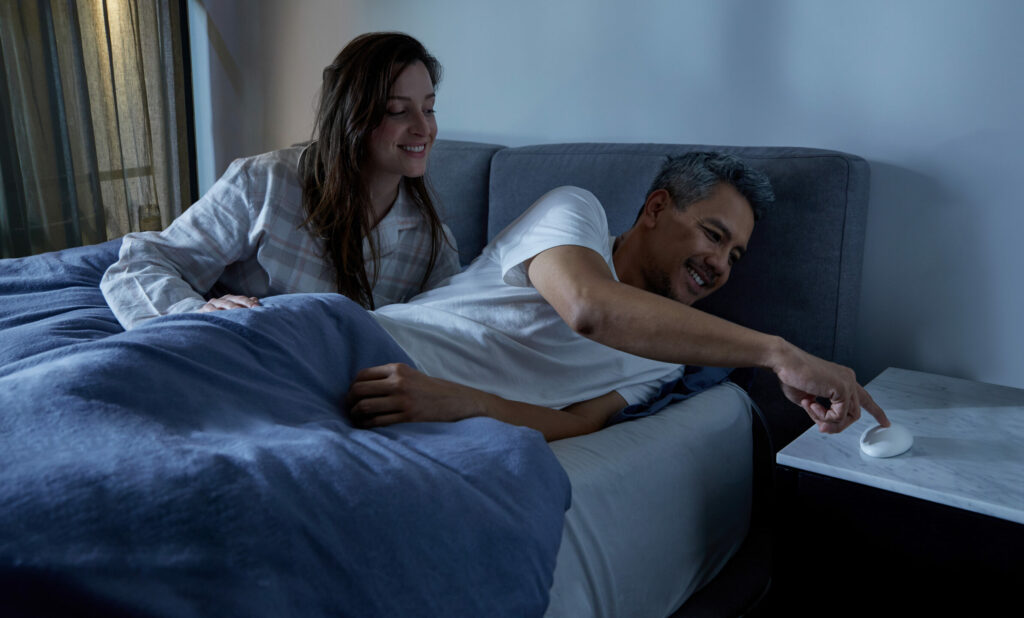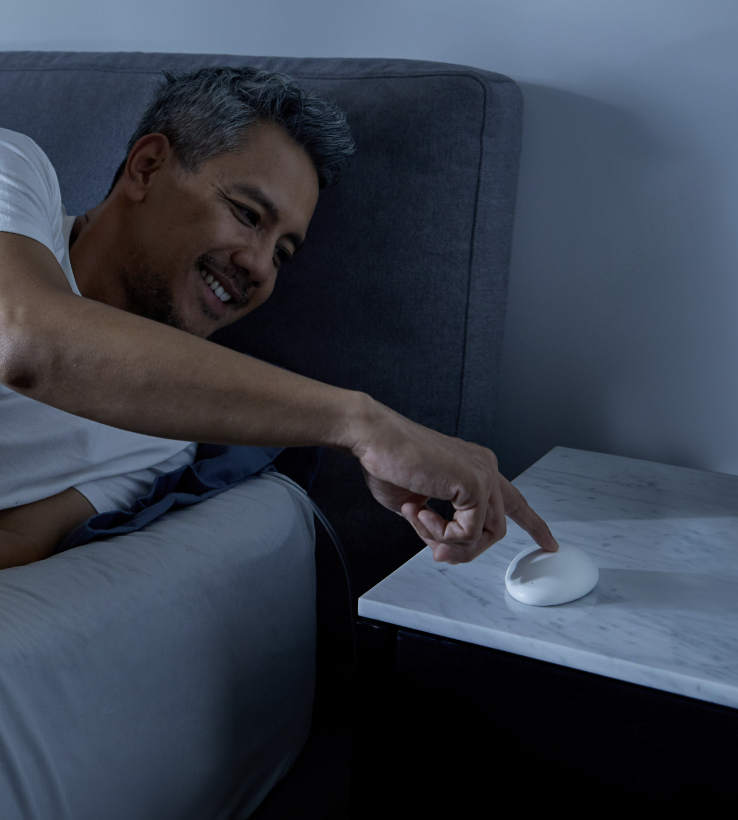
Let’s face it — some of us are just light sleepers! No matter what you do, the slightest sound wakes you up, whether it’s from your partner’s snoring, the early morning traffic outside your window, or neighbors that just don’t seem to know when to wind down the festivities. And that’s okay! There’s nothing wrong with you — but you’ve gotta do something about it so you can get the sleep you need to kick tomorrow’s butt. Today might be the day to invest in some earplugs for sleeping through the night. But what are the best earplugs for sleeping? What should you be looking for? How are they different from one another? Is it even a good idea to wear them overnight?
Let’s find out with the definitive guide to earplugs for sleeping!
How Do Earplugs for Sleeping Work?
Earplugs (in general) are designed to compress into a small shape and then re-expand when they’re fitted into your ear canal. They come in a pretty wide range of shapes and materials to accommodate for different users and individual preferences but the general concept is the same — when you cover your ear canal so that external sound (like snoring or morning traffic) can’t get to your eardrum, you won’t be awakened by stray sounds! There are a lot of options for earplugs on the market and they’re made out of all sorts of materials -- finding the right one can be difficult, so let’s take a look at the options.
What Are Sleep Earplugs Made Out Of?
When we’re talking about earplugs for sleeping, we’re covering a wide range of different products, which means that there are different materials companies use to make them, though it’s limited to mainly a few consistent materials.
Foam — The classic earplugs that you’re probably aware of already are made from a memory-foam substance. You roll them in-between your fingers, insert them into the ear, and then they slowly expand and block out noise. While they may work for some folks, there’s fancier technology out there (it’s 2021, for cripes sake!) that’s worth looking into.
Silicone — These earplugs for sleeping are very soft, and safer than alternatives made from plastics that could scratch the inside of your ear. Some silicone earplugs are designed to mimic the shape of foam, such as simple in-ear noise dampeners. Others silicone earplugs fall into the category of sleep technology — such as the Bose SleepBuds, which slip into your ear like discreet headphones and play the sounds of rustling leaves or crackling fires, to help you meditate on your way to sleep.
Wax — If you just don’t feel like you have enough wax in your ears already, this will be perfect for you! All kidding aside, real wax earplugs are a relatively natural alternative to silicon and foam. Wax earplugs warm to your body’s temperature and, being moldable, easily adapt to the unique shape of your ear canal.
Health & Cleanliness
Can you use your earplugs for sleeping every night? Yes! Do you have to make sure that you’re being sanitary? Double yes! Using earplugs for a prolonged amount of time without proper hygiene can lead to ear infections (and it’s gross to be unhygienic). Of course, with disposable earplugs for sleeping, you don’t have to worry about this, but if you’re using something a little more high end (and environmentally friendly) it’ll behoove you to learn to keep ‘em clean. Every different ear plug will come with its own cleaning instructions, but for the most part a little distilled water and mild detergent, air drying, and vigilant care will keep you from getting an infection! The best earplugs for sleeping, at least in terms of cleanliness, are the disposable single-use option.
How Do You Choose The Right Option?
It might take some guess and check to find the right earplugs, because there’s no universal option that will fit every ear. It might end up costing you more than you’d think, simply because you’ll likely have to try a few options before settling on the earplugs for sleeping that’ll work for you. The best place to start is looking through a (relatively) neutral testing-ground-turned-listicle-website like WireCutter, who, after 25 different tests, actually suggested from a panel of their voters one of the cheapest options on the market.
The Best Earplugs in 2021
It might take some guess and check to find the right earplugs because there’s no universal option that will fit every ear. It might end up costing you more than you’d think, simply because you’ll likely have to try a few options before settling on the earplugs for sleeping that’ll work for you. The best place to start is looking through a list of earplugs depending on the material you prefer. We got you covered, take a look at the different options below.
Silicone:

Bose is well known for its series of noise-canceling products. Noise-masking sleepbuds are the latest Bose innovation. The sleepbuds play pre-loaded soothing sounds for sleep and relaxation instead of streaming music. Preview Bose sleepbuds sounds library here. If you like to sleep with complete quietness, sleepbuds may not your best option.
Currently, it is the #1 Amazon seller in the Sound Therapy Products. Price at $249 with free shipping and 1-year warranty.

PQ earplugs include two reusable silicone earplugs, one small holding case and additional two foam earplugs. It is not only blocking noise when sleeping, but also keeping water out during swimming, snorkeling, and showering. It is $16.95 under Amazon’s choice for “earplugs for snoring blocking”.
Rovazo reusable silicone earplugs
![]()
Rovazo reusable silicone earplugs have a NRR (noise reduction rating) 32 db which protect your ears in a loud environment. Snoring sound is usually between 60 and 80 db. With Rovazo reusable silicone earplugs, the snoring sound will reduce to between 28 db (60 -32) and 48db (80-32). Recommend to light sleepers. You need to pay 10 bucks to get 2 Pack of them, with 2 Carrying Cases.
Foam:
Mack's Ultra Soft Foam Earplugs

Mack’s is the #1 doctor recommended brand of foam earplugs to protect hearing and to get a good night’s sleep when sleeping with a snoring spouse. These ultra soft earplugs use ergonomically-shaped, super soft foam, which will not cause any discomfort at sleep. It has a 32 db NRR blocking loud noise. It is $8 in Amazon and you can get 50 pairs.

Mpow Foam Earplugs include 60 pairs with a little pretty aluminum carry case. It is made from premium PU material with 34dB SNR (Single Number Rating). You are advised to replace with a new pair of earplug after every 5-day use. It is $9 for 60 pairs (means only 15 cents for a pair).
Flents Protechs Sleep Ear Plugs

Flents Protechs sleep ear plugs are made of a soft foam that sits comfortably in the ear. The foam compresses quickly for easy insertion. These sleep ear plugs are specialized contour shape creating a snug and comfortable fit in your ear. It comes in a convenient pack of 10 pairs. Please note that it has a 28 NRR, slightly lower compared to others. However, if you are looking for extreme soft and comfortable earplugs for sleep, don’t miss this one.
Wax:

Ohropax ear plugs are made from a soft wax compound covered with cotton. With a noise reduction rating of 23 dB (NRR23), it could block 80% of the sounds during sleep. It comes with two packs including total twenty-four plugs. It costs $12 - $50 cents for each pair. However, it is usable. Some of the customers have used them for years without changing to a new one.

Mighty plugs are made of cotton, bee's wax and lanolin. $8 for one pair may sound expensive, however, you can cut one in half so it makes two if your ear canals are not big. The most important part is that they last pretty long so don’t need to replace them very often.
Flents Soft Wax-Cotton Ear Plugs

Flents soft wax-cotton ear plugs are made of a very gentle, pliable pink wax that you can mold with the warmth of your fingers to fit your ears. Each box contains 6 pair which can be reused over time. The ear plugs have a noise reduction rating of 22 db.
How Much Do Earplugs for Sleeping Cost?
The cost of sleep earplugs ranges drastically, from a measly 50 earplugs for ten dollars to a whopping $250 for a more technologically-advanced option (that’s the high price you might pay to get the best earplugs for sleeping). Amazon’s marketplace has a wide variety of options to choose from, many of them in the $10-30 range. With an average lifespan (for non-disposables) of around 3-6 months… that can add up pretty quickly!
A Few Downsides
Sizing — Some earplugs are one-size-fits-all, while others may come in multiple sizes to accommodate users with different ear dimensions. Since everybody’s ear is a different shape, it’s impossible to know which will work until you try it. And believe us — it’s gonna be hard to find earplug suppliers that’ll let you return earplugs if you don’t like them. They’re not really a refurbishable item!
Multiple Uses — Some foam and silicone earplugs for sleeping are reusable, but most are designed for one-time only. Reusable options require upkeep so they don’t give you an infection.
Noise Reduction — Earplugs usually have a Noise Reduction Rating (NRR) which is measured in decibels (dB). The NRR may fall anywhere from 20 to 34db but the higher the NRR, the more effective the earplugs are at blocking outside sounds. But is that enough to quell the sounds of snoring? In one study, mild snoring was defined as 40-50 decibels (severe was higher than 60db!). Even the best earplugs for sleeping sometimes just won’t do the trick.
If you are using an earplug to cover noises like the traffic we hear you. However, if you are using earplugs to cover the noise of your partner’s snoring there is a better solution. It is important that you address the snoring solution itself rather than covering the noise. Snoring can be a sign of a more serious condition and a sleep study is always recommended to make sure the snoring is under control. We know, snoring is destructive to your sleep, but you should be aware that it also takes a toll on your partner and the best solution is to help your partner find the best anti snore solution of 2021.
Uncomfortable — This is the holy grail, right? Finding a sleep aid that is actually comfortable isn’t always the easiest thing — some people find that sleeping with earplugs in makes it less comfortable to sleep on their sides, others don’t mind it at all. It really just depends on your preference!
And Finally...
If you’re a light sleeper with a snoring partner or noisy neighbors, earplugs for sleeping may help you get a decent night of sleep, but there are other options out there that are more advanced. If you’re sensitive to your sleeping conditions (like if having something stuffed in your ear isn’t exactly your idea of ideal comfort), earplugs might not be for you. That said, with its low barrier to entry and ease of use — give it a try! Earplugs for sleeping might get you back some hours of sleep, and nobody can afford to give that up.






